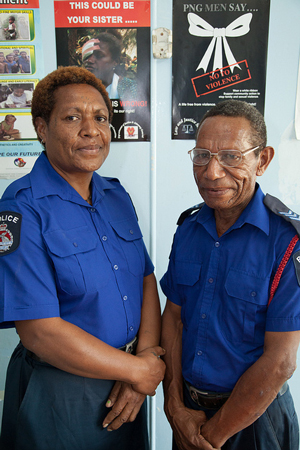Family and Sexual Violence (FSV) is not only violence or sexual assault between intimate partners or husbands and wives; it can also be between brothers and sisters, parents and children or between older and younger relatives.
With support from Pacific Women Shaping Pacific Development program (Pacific Women), the Australian Government is providing $4,500,000 over three years to support and strengthen national coordination, implementation and monitoring mechanisms to address the increasing prevalence of family and sexual violence in PNG.
Ms Ume Wainetti, National Coordinator of PNG Family and Sexual Violence Action Committee, shared during a presentation at the Development Policy Centre : 'There are many myths about this violence. When a woman goes long-long [mad], people say its sorcery, it's never the husband's fault. And sometimes we Papua New Guinea women believe that when a husband hits us, it means that he loves us or is jealous. Often you will see even our highly educated women continue to live their lives through their husbands, with everything being about him. But tomorrow, if he walks out, he will leave her with nothing. Many times we make excuses for the violence that we see, blaming it on culture or alcohol and drugs. So our own understanding of domestic violence is confused, and we continue to accept living like this.'
The four project partners are researching and developing a framework for gender-based violence (GBV) interventions for improved planning, budgeting and monitoring at national and provincial levels. They will develop a national GBV strategy, in partnership with relevant stakeholders, to implement and pilot in government departments. FSV Action Committees in four provinces are being strengthened to effectively refer and manage cases, and ensure the availability and quality of GBV interventions. FSV advocates and human rights defenders in eight provinces are also receiving support to raise awareness and prevent GBV. Despite some challenges, including changes to the project scope in 2014 and delays in implementation, the project has had a number of successes. Provincial governments are committed to the project, and they will develop provincial plans and allocate budgets to support the project.

